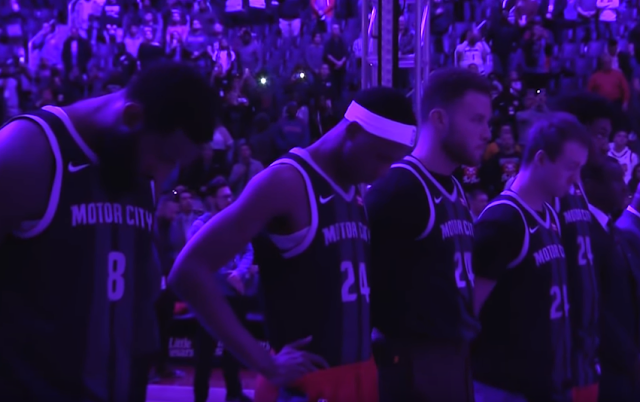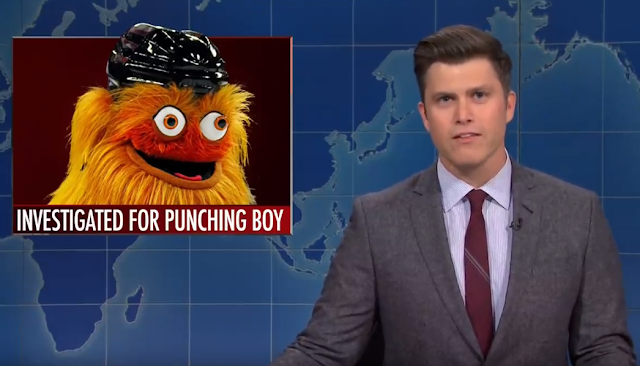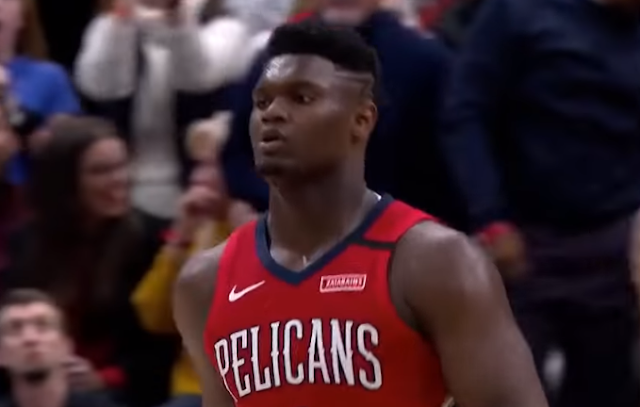This Sunday (Feb. 2nd), the San Francisco 49ers will return to the
Super Bowl as one-point underdogs against the Kansas City Chiefs. This will be San Francisco’s first Super Bowl appearance since the 2012-13 season, back when Colin Kaepernick was still quarterbacking a Jim Harbaugh-coached team.
The four years following that Super Bowl 47 appearance were a slow yet steady decline for the 49ers, culminating in a 2-14 record in 2016-17 – tied for the worst in franchise history – under one-and-done coach Chip Kelly.
In a way, the Niners put themselves on a direct path to Super Bowl 54 the day after the 2016-17 season ended. That was the day when the team snatched up Kyle Shanahan, then the offensive coordinator for the NFC-champion Atlanta Falcons, as their next head coach.
Shanahan brought an offensive pedigree not seen in the Bay Area since the Bill Walsh era. His brilliant play-calling and scheming had just led the Falcons to historic heights, garnering Matt Ryan the 2016 NFL MVP award. Expectations were sky high that Shanahan would lead a storied-but-suffering San Francisco franchise back to glory.
Early returns weren’t great. The team started 0-8 under Shanahan in 2017. Then they traded for Jimmy Garoppolo at midseason and the entire trajectory of the franchise was altered.
When Garoppolo has been healthy enough to start, the Niners are 21-5 over the past three years (including playoffs), an 80.7 win percentage. It’s not that Garoppolo has been an MVP candidate, but he provides a level of quarterback competency that opens up Shanahan’s full arsenal.
This year’s 49ers team has run up a 15-3 record (again, including playoffs) by quite literally running the football at an extremely high rate. San Francisco averaged 31.1 carried and 144.1 rushing yards per game this season, both second only to the Baltimore Ravens. Their offensive line has been opening holes for a trio of running backs (Matt Breida, Tevin Coleman, and Raheem Mostert) since the season started.
In Week 2, before the league realized what a juggernaut this team was, the 49ers rolled into Cincinnati as one-point underdogs and piled up 259 rushing yards in a 41-17 blowout win. In that game, Breida was the star, with 121 yards on 12 carries. But with Breida banged up in the playoffs, Mostert has been the bell-cow. In two decisive playoff victories (27-10 over the Vikings; 37-20 over the Packers), the Purdue product has 278 yards on 41 carries (6.0 YPC). Most of that came in last week’s Conference Championship against Green Bay (220 yards plus four touchdowns).
Garoppolo has been excellent when the team has needed him to be. They just haven’t needed him to be very often. During a nail-biting 28-25 win at Arizona on Halloween, Garoppolo threw for 317 yards, four touchdowns, and no interceptions. He was just as good in a 48-46 road win over the Saints, throwing for 349 yards and another four TDs in one of the toughest road environments in the league.
Those were two of the four games in which Garoppolo had a passer rating
over 130.0. He finished the year eighth in passer rating at a solid 102.0.
On the other side of the ball, San Francisco’s defense has been one of the most electrifying all season. Led by Arik Armstead (10.0 sacks), Nick Bosa (9.0 sacks), and Dee Ford (6.5 sacks in 11 games), the Niners have arguably the best front four in the league. They are able to pressure opposing QBs without blitzing, letting DC Robert Saleh drop seven in coverage most of the time.
The unit had some sour moments this year, to be sure. The aforementioned 48-46 shootout with the Saints saw it surrender over 460 yards to Drew Brees and company. But, on the whole, it’s been excellent and, importantly, it’s gotten back to its best in the playoffs.
The Niners held the Vikings to just 147 total yards in the Divisional Round. They followed that up by pitching a first-half shutout against the Packers in a game that was effectively over by the break (27-0 halftime lead). In those two games, they racked up nine sacks against two above-average offensive lines and generated five turnovers.
When Shanahan was brought into San Francisco, the optimism mainly centered around the offense. The team was supposed to become the next version of the 2016 Falcons, an offensive force that would score its way to a championship.
While they are now on the doorstep of that championship, Shanahan’s team is far more balanced than expected. The draft capital they’ve spent on the defensive side of the ball (7 of their last 9 first-round picks) is paying huge dividends.
Now all they need is one more commanding performance against Patrick Mahomes,
the 2018 NFL MVP, and a Kansas City team that hasn’t lost since early November.
- Hallo sahabat
News to Sports, Pada Artikel yang anda baca kali ini dengan judul Januari 2020, kami telah mempersiapkan artikel ini dengan baik untuk anda baca dan ambil informasi didalamnya. mudah-mudahan isi postingan
Artikel NFL,
Artikel San Francisco 49ers, yang kami tulis ini dapat anda pahami. baiklah, selamat membaca.
Judul :
49ers Path to the Super Bowl Started Three Years Agolink :
49ers Path to the Super Bowl Started Three Years Ago
Baca juga
Januari 2020
This Sunday (Feb. 2nd), the San Francisco 49ers will return to the
Super Bowl as one-point underdogs against the Kansas City Chiefs. This will be San Francisco’s first Super Bowl appearance since the 2012-13 season, back when Colin Kaepernick was still quarterbacking a Jim Harbaugh-coached team.
The four years following that Super Bowl 47 appearance were a slow yet steady decline for the 49ers, culminating in a 2-14 record in 2016-17 – tied for the worst in franchise history – under one-and-done coach Chip Kelly.
In a way, the Niners put themselves on a direct path to Super Bowl 54 the day after the 2016-17 season ended. That was the day when the team snatched up Kyle Shanahan, then the offensive coordinator for the NFC-champion Atlanta Falcons, as their next head coach.
Shanahan brought an offensive pedigree not seen in the Bay Area since the Bill Walsh era. His brilliant play-calling and scheming had just led the Falcons to historic heights, garnering Matt Ryan the 2016 NFL MVP award. Expectations were sky high that Shanahan would lead a storied-but-suffering San Francisco franchise back to glory.
Early returns weren’t great. The team started 0-8 under Shanahan in 2017. Then they traded for Jimmy Garoppolo at midseason and the entire trajectory of the franchise was altered.
When Garoppolo has been healthy enough to start, the Niners are 21-5 over the past three years (including playoffs), an 80.7 win percentage. It’s not that Garoppolo has been an MVP candidate, but he provides a level of quarterback competency that opens up Shanahan’s full arsenal.
This year’s 49ers team has run up a 15-3 record (again, including playoffs) by quite literally running the football at an extremely high rate. San Francisco averaged 31.1 carried and 144.1 rushing yards per game this season, both second only to the Baltimore Ravens. Their offensive line has been opening holes for a trio of running backs (Matt Breida, Tevin Coleman, and Raheem Mostert) since the season started.
In Week 2, before the league realized what a juggernaut this team was, the 49ers rolled into Cincinnati as one-point underdogs and piled up 259 rushing yards in a 41-17 blowout win. In that game, Breida was the star, with 121 yards on 12 carries. But with Breida banged up in the playoffs, Mostert has been the bell-cow. In two decisive playoff victories (27-10 over the Vikings; 37-20 over the Packers), the Purdue product has 278 yards on 41 carries (6.0 YPC). Most of that came in last week’s Conference Championship against Green Bay (220 yards plus four touchdowns).
Garoppolo has been excellent when the team has needed him to be. They just haven’t needed him to be very often. During a nail-biting 28-25 win at Arizona on Halloween, Garoppolo threw for 317 yards, four touchdowns, and no interceptions. He was just as good in a 48-46 road win over the Saints, throwing for 349 yards and another four TDs in one of the toughest road environments in the league.
Those were two of the four games in which Garoppolo had a passer rating
over 130.0. He finished the year eighth in passer rating at a solid 102.0.
On the other side of the ball, San Francisco’s defense has been one of the most electrifying all season. Led by Arik Armstead (10.0 sacks), Nick Bosa (9.0 sacks), and Dee Ford (6.5 sacks in 11 games), the Niners have arguably the best front four in the league. They are able to pressure opposing QBs without blitzing, letting DC Robert Saleh drop seven in coverage most of the time.
The unit had some sour moments this year, to be sure. The aforementioned 48-46 shootout with the Saints saw it surrender over 460 yards to Drew Brees and company. But, on the whole, it’s been excellent and, importantly, it’s gotten back to its best in the playoffs.
The Niners held the Vikings to just 147 total yards in the Divisional Round. They followed that up by pitching a first-half shutout against the Packers in a game that was effectively over by the break (27-0 halftime lead). In those two games, they racked up nine sacks against two above-average offensive lines and generated five turnovers.
When Shanahan was brought into San Francisco, the optimism mainly centered around the offense. The team was supposed to become the next version of the 2016 Falcons, an offensive force that would score its way to a championship.
While they are now on the doorstep of that championship, Shanahan’s team is far more balanced than expected. The draft capital they’ve spent on the defensive side of the ball (7 of their last 9 first-round picks) is paying huge dividends.
Now all they need is one more commanding performance against Patrick Mahomes,
the 2018 NFL MVP, and a Kansas City team that hasn’t lost since early November.
















